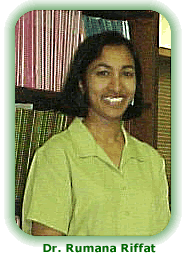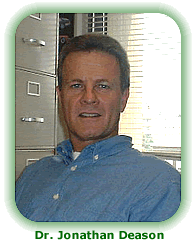Over the Fall 2004 semester, members of the E&EM program worked with two other GW environmental programs to develop a major proposal to assist the Eurasian National University in Astana, Kazakhstan in developing a new graduate program in Environmental management and Engineering. The other programs are the Environmental Engineering program in the Civil and Environmental Engineering Department, School of Engineering and Applied Science (SEAS) and the Environmental and Occupational Health program in the School of Public Health and Health Services.
The proposed program for the Eurasian University (ENU), which is based on models used in the United States, will be interdisciplinary in nature and offered jointly by the Institute of Natural Sciences, and the Architectural and Building Institute at ENU. A 20-page detailed plan for the development and implementation of the new graduate program in Kazakhstan was submitted to the Eurasia Foundation in December 2004.
If funded, the program could run for five years. Under the program, faculty from GW and ENU will work together to develop a standard that will be presented to the Ministry of Education in Kazakhstan for approval.
The educational objectives of the program are:
To train students at operational, design, and management levels.
To provide students with knowledge and skills appropriate to the ecological and economic issues of concern in Kazakhstan.
To prepare students to work flexibly within a setting of changing resource availability.
To emphasize the environmental impacts of the oil and gas industry and those industries with which it may be integrated (e.g. petrochemicals and future energy technologies such as hydrogen).
To inculcate an attitude among students that values proactive, anticipatory and preventive approaches to environmental impact, while not neglecting mitigation and remediation.
To develop a model program for the region that may be used as a template for similar programs in Central Asia.

The curriculum will include courses in three focus areas: Environmental Management, Enron mental Engineering, and Environmental and Occupational Health. In addition to assistance with curriculum development and implementation in each of these areas, GW environmental management faculty and students would assist ENU in the following ways:![]() Conduct training sessions to assist ENU faculty with the preparation of grant applications and proposals, anticipating that they will be increasingly competitive for local and international funding as the program progresses.
Conduct training sessions to assist ENU faculty with the preparation of grant applications and proposals, anticipating that they will be increasingly competitive for local and international funding as the program progresses.![]() Assist faculty in identifying revenue-generating opportunities that provide alternate funding for faculty and students, such as consulting assignments, product development and service activities.
Assist faculty in identifying revenue-generating opportunities that provide alternate funding for faculty and students, such as consulting assignments, product development and service activities.![]() Identify and help support opportunities for regional cooperation, such as opening positions to other countries in the region and elsewhere on a cost-recovery basis.
Identify and help support opportunities for regional cooperation, such as opening positions to other countries in the region and elsewhere on a cost-recovery basis.![]() Assist faculty in identifying demonstration projects and large-scale cooperative projects in which the University may play a role in partnership with the government and private sector; such projects tend to lend stability and credibility to new programs.
Assist faculty in identifying demonstration projects and large-scale cooperative projects in which the University may play a role in partnership with the government and private sector; such projects tend to lend stability and credibility to new programs.![]() Assist the ENU in developing a paid service for evaluating siting and planning activities for new facilities. This revenue-generating activity would assist in making contacts early in project development and might employ some students and faculty in short-term relevant work.
Assist the ENU in developing a paid service for evaluating siting and planning activities for new facilities. This revenue-generating activity would assist in making contacts early in project development and might employ some students and faculty in short-term relevant work.![]() Assist the Government of Kazakhstan, to the extent that they wish, in establishing research grant and assistance programs that conform to international standards.
Assist the Government of Kazakhstan, to the extent that they wish, in establishing research grant and assistance programs that conform to international standards.![]() Work with ENU on the possible establishment of a World Health Organization Collaborating Center for environmental health management or a comparable arrangement with UNEP. Although these centers are not funded, designation is a distinct honor that lends credibility to the institution and tends to attract interest and support from other sources.
Work with ENU on the possible establishment of a World Health Organization Collaborating Center for environmental health management or a comparable arrangement with UNEP. Although these centers are not funded, designation is a distinct honor that lends credibility to the institution and tends to attract interest and support from other sources.![]() Facilitate long-term relationships with institutions that have similar ecological issues and that may be able to stabilize the effort at ENU beyond GW's capability to do so. For example, the combination of arid lands, mountain and plains terrain and the presence of a large and important oil and gas industry suggest the possibility of a strategic relationship with institutions in Alberta, Canada.
Facilitate long-term relationships with institutions that have similar ecological issues and that may be able to stabilize the effort at ENU beyond GW's capability to do so. For example, the combination of arid lands, mountain and plains terrain and the presence of a large and important oil and gas industry suggest the possibility of a strategic relationship with institutions in Alberta, Canada.![]() Provide advice and support at a distance and through occasional visits to the region to assist faculty and staff in their on-going efforts.
Provide advice and support at a distance and through occasional visits to the region to assist faculty and staff in their on-going efforts.![]() Assist faculty and students in placing their work in refereed publications, so that they will become visible and better able to market their capability to funding agencies, regional governments and prospective students from the region.
Assist faculty and students in placing their work in refereed publications, so that they will become visible and better able to market their capability to funding agencies, regional governments and prospective students from the region.![]() Assist ENU faculty members with the development of a range of marketing tools to enhance enrollment in the Environmental Management and Engineering Masters degree program. Such tools are anticipated to include the following:
Assist ENU faculty members with the development of a range of marketing tools to enhance enrollment in the Environmental Management and Engineering Masters degree program. Such tools are anticipated to include the following:![]() Creation of an Environmental Management and Engineering program web site similar to several that have been successful in recruiting graduate students at GW, such as the Environmental and Energy Management Program web site.
Creation of an Environmental Management and Engineering program web site similar to several that have been successful in recruiting graduate students at GW, such as the Environmental and Energy Management Program web site.![]() Creation of a web-based Environmental Management and Engineering program newsletter providing information about activities of the new program, similar to those used at GW, such as the Environmental and Energy Management newsletter.
Creation of a web-based Environmental Management and Engineering program newsletter providing information about activities of the new program, similar to those used at GW, such as the Environmental and Energy Management newsletter.![]() Assistance with the development of a database of prospective subscribers to the ENU Environmental Management and Engineering program newsletter. The database will be used to provide the newsletter to individuals and organizations with interests in the educational program. A similar database that is used as a list -serve for distribution of the Environmental and Energy Management program newsletter at GW has grown since its creation in 1998 to over 9,000 subscribers at the present time, and has been highly productive in recruiting new graduate students, identifying organizations interested in sponsoring research, and facilitating partnerships with non-university entities for the conduct of seminars, joint educational programs and other revenue-enhancing activities.
Assistance with the development of a database of prospective subscribers to the ENU Environmental Management and Engineering program newsletter. The database will be used to provide the newsletter to individuals and organizations with interests in the educational program. A similar database that is used as a list -serve for distribution of the Environmental and Energy Management program newsletter at GW has grown since its creation in 1998 to over 9,000 subscribers at the present time, and has been highly productive in recruiting new graduate students, identifying organizations interested in sponsoring research, and facilitating partnerships with non-university entities for the conduct of seminars, joint educational programs and other revenue-enhancing activities.

Key leaders in the new environmental management initiative are Professor Jonathan Deason, lead professor of the Environmental and Energy Management program in the Department of Engineering Management and Systems Engineering (SEAS); Associate Professor Rumana Riffat, lead professor of the Environmental Engineering program in the Civil and Environmental Engineering Department (SEAS); and Professor Tee Guidotti, Chairman of the Department of Environmental and Occupational Health, School of Public Health and Health Services. As part of the plan development effort, Dr. Riffat traveled to Kazakhstan to meet with officials of ENU in November 2004.


